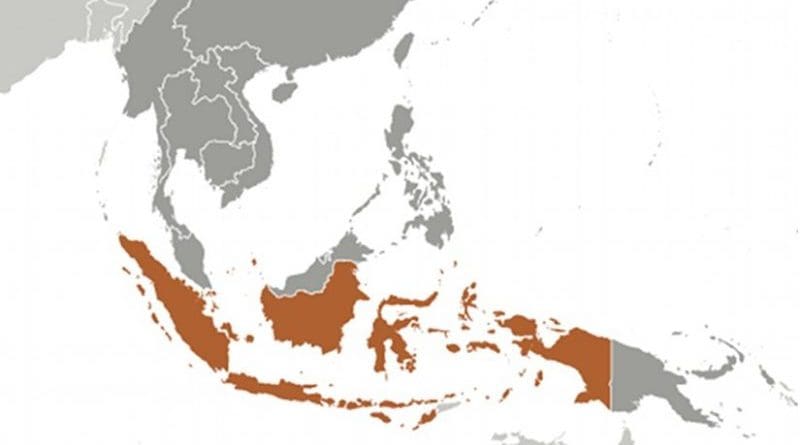Azerbaijan To Open Multiculturalism Center In Indonesia
Azerbaijan, a Muslim-majority country in the South Caucasus, is set to open a multiculturalism center in Indonesia, home to the world’s largest Muslim population.
“We will open a multiculturalism center in Indonesia soon,” Azad Mammadov, executive director of the Baku International Multiculturalism Center (BIMC), said in Baku recently while meeting the chair of Indonesia’s National Commission on Human Rights (Komnas HAM), Nur Kholis, and his team.
Komnas HAM was in Baku from Oct. 20 to 24 to see first-hand the situation of more than one million refugees and internally displaced persons, the victims of Armenian aggression. The team also wanted to explore human rights in secular, liberal Azerbaijan.
Both Azerbaijan and Indonesia are Muslim-majority pluralistic societies, in which members of a range of ethnic groups and religions have lived in harmony for centuries.
“It is an excellent idea to open an Azeri multiculturalism center in Indonesia. Many in Indonesia know little about Azerbaijan and its tolerant society,” said Nur.
The BIMC, which was established last year to promote Azerbaijan worldwide as an example of tolerance and a role model for multiculturalism, sent a delegation led by noted Azeri Indonesian language professor Habib Zarbaliyev to Indonesia recently.
“I visited Indonesia and held talks with local authorities. The response was very positive,” said Zarbaliyev, who played a key role in establishing an Indonesian department at the Azerbaijan University of Languages in Baku.
According to Mammadov, the new center will be established in one of Indonesia’s Islamic universities and will provide courses on multiculturalism.
“We will have more people-to-people exchanges, especially youth exchanges, between the two countries in the future,” he explained.
The Indonesian team also met with Azerbaijan’s Deputy Minister of Culture and Tourism Mammedaliyeva Sevda Yusuf Gizi at the BIMC offices.
“Azerbaijan has already become an international hub for multifaith dialogue. It is well known for its tolerance, “ said Yusuf Gizi.
The Azeri government, according to Yusuf Gizi, recently organized the World Forum on Intercultural Dialogue in Baku, with a focus on multiculturalism.
“This meeting was the third one. Previously, we held this forum in 2011 and 2013. Many people attended from more than 100 countries from all over the world, including from Indonesia,” Yusuf Gizi said.
International organizations including UNESCO, the UN Alliance of Civilizations and the Organization of Islamic Cooperation also took part in the third forum.
Azerbaijan, the deputy minister said, had a long tradition of maintaining harmony among different ethnic and religious groups.
“Orthodox and Catholic churches, synagogues, Zoroastrian temples, all are part of our cultural heritage, and we are proud of that,” President Ilham Aliyev said while opening the forum.
According to Yusuf Gizi, Azerbaijan launched the so-called “Baku process”, a dialogue between culture ministers, religious leaders and scholars to promote multiculturalism and religious tolerance.
The Baku process is a serious effort to curb hatred, terrorism, alienation, discrimination, xenophobia and Islamophobia.
Azerbaijan, indeed, has all the qualities to become an international hub for multiculturalism. Its ethnic makeup includes Azerbaijanis, Armenians, Lezgins, Talysh, Avars, Meskhetian Turks, Tatrs, Ukrainians, Russians, Georgians, Jews, Kurds and Udins.
Muslim-majority Azerbaijan has diplomatic ties with both Israel and Palestine, both of which have embassies in Baku.
Another example is Quba, a small town in northern Azerbaijan with a population of 163,000. At least 14 national minority groups live in this small town, which is famous for its carpets and delicious apples.
“Everybody is living in peace and harmony here. We don’t have any problems between different ethnic and religious groups. We have had Jewish settlements in Quba for centuries,” Yashar Mammadov, head of the Quba region, told the Indonesian delegation, which visited the town on Oct. 22.
Nur praised Azerbaijan after visiting a synagogue and a school for all foreign ethnic groups in Quba.
“Here in Azerbaijan, Muslims don’t have any problems with Jews. And vice versa. This should be highlighted in the Islamic world,” he said.

